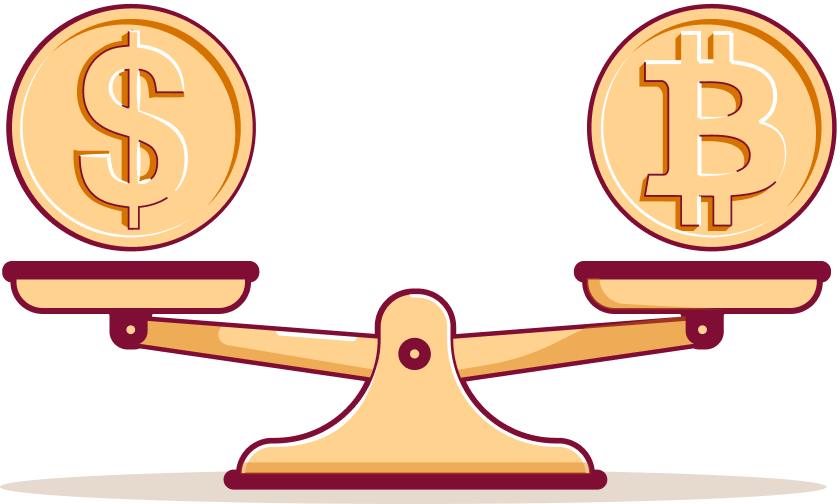Holding bitcoin is cool again. President Donald Trump has vowed to make America the “crypto capital of the planet”, words that have helped supercharge the token’s price to eye-watering six-figure highs.
Wall Street banks and money managers are preparing to jump in. Investors hope Trump will turn the often-derided token into a mainstream financial asset and herald a golden era for crypto.
The president has signed an executive order to “promote US leadership in digital assets” and this month, crypto and AI tsar, venture capitalist David Sacks, laid out plans for upcoming legislation.
Enthusiasts are particularly excited by the prospect of a national bitcoin stockpile, which would cement endorsement of the asset by the US government, and is likely to push its price even higher. “One of the first things we’re going to look at is the feasibility of a bitcoin reserve,” Sacks said.
But how such a reserve would work, and what it would mean for bitcoin, is unclear. And would taxpayers be left holding the bag if — or when — prices fall? The collapse of the high-profile exchange FTX in 2022 caused a wave of bankruptcies and investors to sell off cryptocurrencies.
Some are already worried: prominent US hedge fund Elliott warned recently that Trump’s embrace of crypto will lead to an “inevitable collapse” that “could wreak havoc in ways we cannot yet anticipate.”
The price of bitcoin is currently trading around its highest point since the token was created in 2009 — but a close look at the 16 years since founder Satoshi Nakamoto mined the first coins shows a history of soaring prices typically followed by steep crashes.
It’s clear that the backing of US officials has been good for the price of bitcoin.
Last year, the top US securities regulator approved the launch of regulated funds holding the cryptocurrency, paving the way for pension funds, endowments and other large money managers to plough money into the token. The Trump administration’s full-throated support of the crypto industry has encouraged them to do so.
“This was basically inconceivable as of two years ago,” says Yesha Yadav, associate dean at Vanderbilt University Law School, adding that before Trump’s return to Washington, the price of bitcoin “was driven by novelty, it was driven by excitement and this time round there is real institutional backing.”
Many believe the price can go higher still. Larry Fink, the billionaire founder of BlackRock, the world’s biggest asset manager, said recently that if more sovereign wealth funds considered holding bitcoin, it could reach $700,000.
Matt Hougan, chief investment officer at crypto asset manager Bitwise, says that “bitcoin has found a way to co-opt governments.” Trump’s backing has “removed the last existential threat to bitcoin,” he adds.
Now, some lawmakers are pushing the administration to go even further. Cynthia Lummis, the US senator for Wyoming, is spearheading the creation of a strategic bitcoin reserve.

A strategic reserve
A reserve asset is typically a critical resource that can be used in times of crisis. The US currently has an emergency petroleum reserve which it can use to protect against oil supply shocks, for example, while many countries have gold reserves.
Lummis says the token’s rising value could be used to cut US debt. In July, she introduced a bill seeking to get the US to buy 200,000 bitcoins from the market annually for five years until the stockpile reaches 1mn tokens.
Because crypto is largely anonymous, tracing who Washington buys bitcoin from will be extremely difficult — criminals and hostile governments could be enriched from these purchases.
Danielle Brian, executive director at the Project On Government Oversight, a nonprofit watchdog, says the US government’s interest in crypto raises significant “national security implications [because] of the kinds of investors that are participating in crypto in the first place”.
“It’s a very strange idea,” says Hilary Allen, professor at the American University Washington College of Law. “We need something that isn’t going to be inflated away, something hard and real in reserve. What’s ridiculous is that nothing could be less hard or real than bitcoin,” she adds.
The US government currently holds almost 200,000 bitcoins, tokens which it has seized through criminal investigations. It has previously sold chunks of its holdings in auctions — however many hope the government will now resist selling them off.
More bullish players, such as Lummis, hope the US will begin actively buying more, which could push bitcoin’s price higher. “Anything more than [not selling the current stockpile] will be a plus,” says Hougan.
Advocates say bitcoin would be an effective reserve asset as its supply is finite. Only 21mn coins will ever exist due to the algorithm written into bitcoin’s production code. They believe this scarcity adds value as holding coins now means they will be worth more in the future — and sets bitcoin apart from other cryptocurrencies.
The US is not the only nation contemplating investing in crypto. The Czech central bank is considering adding bitcoin to its reserves, but others are steering clear.
Christine Lagarde, president of the European Central Bank, said recently that she was “confident” that “bitcoin will not enter the reserves of any of the central banks of the ECB’s governing members”.
She added that “reserves have to be liquid, secure and safe” and that “they should not be plagued by the suspicion of money laundering or other criminal activities”.
Few still see bitcoin as a currency. Its historically wild volatility is the first problem — we need coffees to be the same price in the morning as in the afternoon, for example, which requires currencies to be stable so users can trust their value.
Secondly, bitcoin holders do not typically want to spend their coins when they believe the price will continue to climb. Bitcoin’s blockchain is also difficult to scale because it cannot handle a large number of transactions in a short timeframe.
As a result, experiments in using it as legal tender have floundered. El Salvador’s attempt to do so in 2021 has faced backlash and little uptake.
“The original vision was to be peer-to-peer electronic cash, not an asset as part of a balanced portfolio,” says Kristin Smith, chief executive of lobby group Blockchain Association. “It’s changed a bit over time . . . I less see bitcoin as a payment method,” she adds.
Bitcoin is instead most likely to be used as an investment.
“It’s historically gone up, you can’t deny that, despite many situations where people have said ‘this is the death of bitcoin’,” says Omid Malekan, adjunct professor at Columbia Business School.

Institutional investment
For bitcoin to become a mainstream financial asset, it needs Wall Street banks, fund managers, pension schemes and other large institutional players to get involved at scale.
Until recently, most have shied away from holding the token for themselves or their clients, worried about facing backlash from regulators.
Now under Trump, who wants to make the US the world’s “bitcoin superpower”, those worries are ebbing away. “We are likely to see further integration of crypto in traditional finance,” says Allen.
Already, US regulators have made it easier for banks and asset managers to custody crypto and have begun scaling back lawsuits targeting digital asset companies. Meanwhile, Trump’s crypto taskforce is looking at issues including how best to regulate the issuance of tokens, and promote crypto companies’ and traders’ access to banking services, all moves which will bring the industry more in line with traditional finance.
“If the rules come in and make it a real thing . . . the banking side will come in hard on the transactional side,” Brian Moynihan, chief executive of Bank of America said recently, underscoring Wall Street’s eagerness to make money from crypto trading.
Investors are already loading up on bitcoin indirectly through regulated exchange-traded funds launched last year, which have pulled in more than $110bn.
“[Investors have] gone from thinking it was a mistake to have a position on crypto to realising the mistake is not to have an outlook on bitcoin,” says Smith.
Bitcoin has shifted from its original mission of forging an alternative financial system away from the prying eyes of governments and big corporations. And now bitcoin believers are cheering being accepted by arguably the biggest establishment of all — the US government.
But policymakers are worried that if large, systemically important investors such as pension funds and central banks start holding bitcoin, and its price collapses, the impact on the rest of the financial sector will be widespread and crypto companies will risk needing a bailout.
The volatility of crypto, the risk of price crashes and the use of leverage means as it becomes more mainstream it “could destabilise the broader financial system” and create “systemic risk . . . that can have serious negative consequences for the real economy,” the New York Federal Reserve has warned.
A crypto crash could impact the wider US and global economy if the government’s holdings plunge in value and its investments are seen to be unwise. Spillover effects into bond markets are a possible risk.
“The whole origin story of this was a rejection of central banks and traditional finance, and in the end the thing I fear is that it will end up being propped up by central banks and governments,” says Allen.

